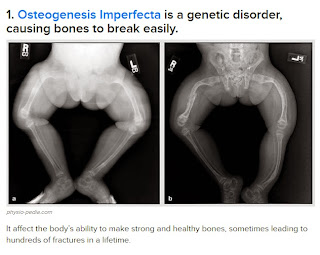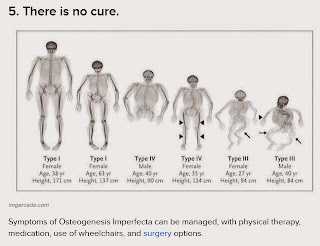I knew Stella long before she was famous. Before she was a comedian. Before she was a writer. When she was someone who hung about on disability messageboards like the (now closed) BBC Ouch boards. In fact, years before she started doing stand up she said to me "I plan to come to England one day and seeing you perform is one of the things I want to do."
Though I knew her for a decade online, I've actually only met her twice; and they were both while she was here covering the Paralympics 2 years ago for the Aussie press. First at a protest outside Atos's HQ, then at a rugby match. She never saw me do stand up, I had to quit due to illness in 2007. Five years before she came over here.
One of the first things I noticed about Stella when I met her was that she sits on the front edge of her wheelchair seat, and sticks everything like her phone in the space behind her - between her butt and her wheelchair's backrest. I noticed because my mum did exactly the same thing: Her handbag, usually a tape measure, and all other kinds of junk were stuffed between mum's back, and the backrest of her chair. Even me when I was small enough to fit. On Saturday it'll be the 6th anniversary of my mum's death.
Tracey's death was sad, but not surprising. When I first met her 20 years ago she'd already lost a younger sister to the same condition she had. I knew she wasn't going to be around forever. Stella's death was an utter shock. I read about it on Twitter on my phone and my hands started shaking. She seemed so vibrant and healthy. Just a couple of weeks ago she wrote a letter to her future self.
When people with OI die; everyone breaks out the snowflakes. It's become a motif. Stella hated it. When a mutual Facebook friend of ours died in October; Stella posted the following status update:
This weekend a young woman with OI that I only knew from Facebook died. I was really sad to hear it. I didn't know her well at all, but she seemed like an interesting person and someone who was highly regarded in the OI and LGBT community.
Within hours, my facebook feed was flooded with pictures of snowflakes. And poems about snowflakes. And analogies about snowflakes melting as a symbol of death. Apparently at some point a parent of a kid with OI decided that their kid was like a snowflake. Presumably because having Osteogenesis Imperfecta make you small, fragile, delicate, unique, blah, blah, blah. Whatever. Call your own child whatever nickname floats your boat. They may grow up loving it, or they may grow up rolling their eyes. Who knows. But this snowflake business seems to have caught on in the OI community and it makes me pretty uncomfortable.
I understand why it may resonate with some people, and having a symbol like that can be comforting when you lose someone from a community you feel a part of. It does remind us of our own mortality. And I know there's no real harm in just letting people have their thing.
But in case I get hit by a bus tomorrow, I want to make something clear.
I am not a snowflake. I am not a sweet, infantilising symbol of the fragility of life. I am a strong, fierce, flawed adult woman. I plan to remain that way in life, and in death.
The second I read about her death I remembered she'd written that and had to dig out that status from 2 months ago and share it on Twitter and Facebook before everyone started changing their userpics to snowflakes.
And people have respected her wishes. I haven't seen a single snowflake.
But BuzzFeed are dicks.
In 2012, Stella wrote this:
It doesn't matter how we got like this. Really. Are you asking because you want to know or because you need to?
So I can just imagine how she'd feel about an article Brad Esposito wrote. I'm not going to link to it, I don't want to reward their clickbait with clicks. But here are snippets in the context of a review.
These are almost certainly not Stella's x-ray's. They'll just be random ones found from a google image search. But for fuck's sake; you can make out the genitalia of the people involved even if they are anonymous.
I'm disgusted that someone would use a person's death for an excuse to break out the x-rays to give the public a good gawp at what our freaky skeletons look like. As Stella had discussed; the public want to know, they don't need to know. A disabled person's medical history, such as x-ray's of what someone will have vaguely looked like under the skin, are not in the public interest. The name of her condition, sure. Her cause of death if that comes to light, yes. But anatomical images of her insides? No.
Stella was fortunate that she'd made her wishes about snowflakes clear before she died so wasn't subjected to them. I know I'm not going to be memorialised in the same way: I'm not famous, I'm not popular, I'm just benefit scrounging scum. I won't be remembered by former Prime Ministers, news outlets won't write articles about me. I'll be lucky if more than 5 people show up to my funeral and 3 people write blog posts about me.
But I feel I need to make the following quite clear:
- No snowflakes either. I'm not small and delicate. I weigh 75kg: You would not want a snowflake my size landing on you. I'd crush you and the imprint left in the snow after I'd squished you would not look like the traditional snow angel.
- No bullshit clickbait fetishising my deformed bones. My innards are my innards. Porn is about seeing the normally unseeable, like getting a good view up someone's cunt. When I was doing my MA in Cult TV I read CSI described as "the porn of death" because with the autopsies, and "the CSI shot" where you get to see a bullet smashing it's way through someone's chest, that's about seeing the normally unseeable too. This kind of article is basically impairment porn: Where you get a have a bloody good look at all someone's unusual bits, both inside and out.
- Do not use the word "RIP" in reference to me. Seriously. If you care that I'm gone you can either type the three whole words "rest in peace" or just not bother.
- Can someone please play Raise Your Glass by P!nk at my funeral. I may be wrong, but it's in all the right ways.
If someone does write that kind of impairment gawp fodder about me, please direct them to this post. These next 5 words are for them:
Fuck you, you creepy arsehole.
In the same article as "It doesn't matter how we got like this. Really. Are you asking because you want to know or because you need to?" She carried on that paragraph with:
If you're just sitting next to one of us on the train, or taking our order at a cafe, you don't actually need to know. If we've actually met and had a conversation beyond "Do you want honey with your chai?" then perhaps it gets a little more relevant. It might come up in conversation, and when it does, we'll be happy to tell you. It's just not a very good opening line.
TV and articles like that one by BuzzFeed just feed into the public notion that a disabled person's medical history is public property that absolute strangers feel they have a right to demand from you. As well as the examples Stella listed, I've been asked by strangers on the bus if I have phantom limb pain, despite the fact that I've had nothing amputated. I once had a woman on the High Street ask what happened to me... and then carry on walking without waiting to hear my answer (which would have been expletives, obviously). She just asked and carried on walking like "did you have an accident?" is some kind of cripple's alternative to the nod and "alright?" that you generally offer when you acknowledge someone's presence in the street.
I was sad when I woke up this morning. But now I'm angry. Angry that Buzzfeed would exploit the death of a popular comedian and activist to get people to click and stare at what her skeleton looked roughly like. Despite it being the kind of thing she publicly railed against.





